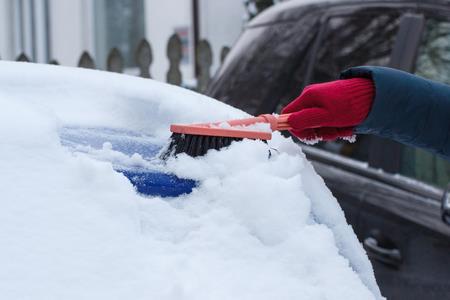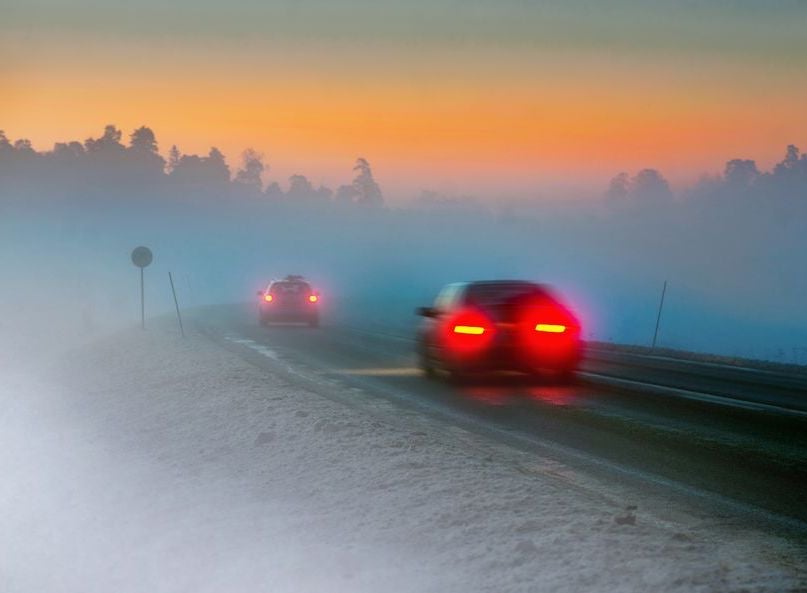How to drive in winter: Top tips to keep you safe when the temperature drops
Following these simple steps could stop you breaking down in treacherous conditions, says Sean O'Grady


Your support helps us to tell the story
From reproductive rights to climate change to Big Tech, The Independent is on the ground when the story is developing. Whether it's investigating the financials of Elon Musk's pro-Trump PAC or producing our latest documentary, 'The A Word', which shines a light on the American women fighting for reproductive rights, we know how important it is to parse out the facts from the messaging.
At such a critical moment in US history, we need reporters on the ground. Your donation allows us to keep sending journalists to speak to both sides of the story.
The Independent is trusted by Americans across the entire political spectrum. And unlike many other quality news outlets, we choose not to lock Americans out of our reporting and analysis with paywalls. We believe quality journalism should be available to everyone, paid for by those who can afford it.
Your support makes all the difference.At the risk of patronising folk, road safety and breakdown organisation GEM Motoring Assist is urging motorists to do some things that are blindingly obvious common sense, but which, it must be admitted, are relatively rarely followed.
Then it’s too late, and you’ve skidded your lovely new SUV into the side of a neighbour’s house.
And to think you used to be friends. If only…
Anyway, some nasty weather is fast approaching, unpleasant as it is to contemplate it, and, obviously, road journeys are more difficult and treacherous when there is ice on roads, foggy conditions or a really massive amount of snow.
They can all keep you away from work, but that’s about all that can be said for them.
So here are the GEM safety tips that will reduce the risk of delay and difficulty. They will also help you avoid putting additional strain on the emergency services and breakdown providers who are likely to be at full stretch in winter weather (so you’ll be hanging around in the cold for even longer than usual while you await help).
Again, these are all things you can work out for yourself – but will you actually do them?
- Don’t drive if you don’t really need to. The easiest way to avoid trouble from winter conditions is to postpone your journey.
- If you do have to travel, ensure your car is properly equipped for the likely conditions. Get a winter check-up – or at the very least ensure the battery is in the best possible shape.
- Listen for weather updates and plan your travel accordingly.
- Ensure your windscreen and all other windows are completely clear of snow and ice before you set out. Give your lights and number plate a good wipe, too.
- Prepare a set of essential items to take with you, including a shovel, a fully charged mobile phone, a torch, an ice scraper, food, water, jump leads, a first aid kit, warm clothes and a supply of sand or gravel to assist with grip if your wheels are spinning.
- In winter conditions, keep your speeds down, leave plenty of space for the vehicle in front, give room to snowploughs and gritter trucks, and be ready for sudden, rapid deteriorations in conditions.
- Remember that driving in conditions like this is hard work. You are likely to become tired much more quickly than in less challenging conditions, so ensure you build in breaks on your journeys.
- Take a look at the GEM e-Book on winter driving. It’s sensible and clear. There are plenty of such guides out there, but this one does seem comprehensive. You can have a look over it if you’re snowed in and bored.
Basically if you buy a can of de-icer and keep it somewhere outside the car (obviously), and stay in high gear, you won’t go that far wrong.

You might also like to investigate fitting winter tyres, especially if you can’t avoid driving in the worst of the weather. Some of them make a marked difference and can be well worth it.
GEM road safety officer Neil Worth adds: “It makes sense to have a plan in place that means you can postpone a journey, or switch to public transport.
“Agree to reschedule a meeting or a visit if it’s not vital. In that way, you’re avoiding a lot of potential trouble for yourself, and ensuring you won’t be putting additional strain on emergency and recovery crews.”
Established in 1932 as the charmingly named Company of Veteran Motorists, later the Guild of Experienced Motorists, GEM is an independent road safety association – and they’d like to keep us all from a prang.
Join our commenting forum
Join thought-provoking conversations, follow other Independent readers and see their replies
Comments